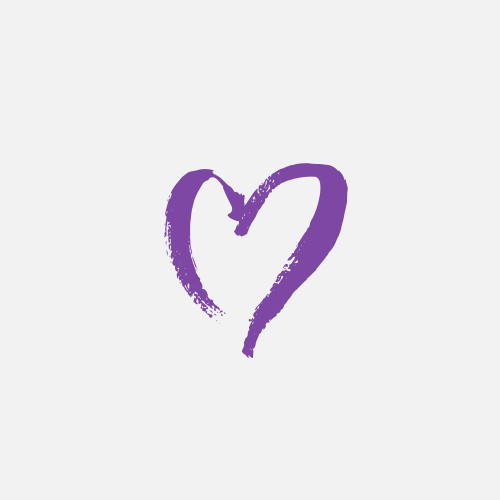As part of our #heartforher campaign, we are sharing remarkable stories of dedication and the extraordinary ways lives are changed at The Royal. Your end of financial year donation will help our incredible doctors and medical teams provide the best possible care and treatment – and create hope for women like Briana.
Briana Forman’s life was turned upside down in March this year when she woke up in the middle of the night feeling as if there was “a hot knife” stabbing into her right breast.
Over the next two weeks, an ultrasound and a biopsy confirmed every woman’s worst fears. The 28-year-old nurse had a highly aggressive tumour of 2.4 centimetres in diameter. She needed chemotherapy. And fast.
“I was just devastated,” the Kiwi-born, Australian-raised Briana recalls. “I have always wanted to have children. Some of my colleagues tried to prepare me for the possibility that I may not have enough time to do egg retrieval before my treatment began.”
But then a little miracle happened. During her consultations with the cancer specialists, they told her about the new, publicly funded oncofertility service at The Royal Hospital for Women in Randwick, now available for cancer patients at The Fertility & Research Centre.
She would be able to have three weeks of fertility treatment there before she began her chemotherapy treatment. Those precious weeks, under the care of The Royal’s fellow in obstetrics and gynaecology, Dr Stephanie Sii, allowed the retrieval and storage of her eggs – and gave her a fighting chance of having a family if she ever chooses to do so.
The Fertility & Research Centre is a first in Australia, offering a full range of fertility services for cancer patients, nation-wide. As well as harvesting eggs, the Centre will freeze eggs, embryos, ovarian tissue for women and girls, and testicular tissue and sperm for men and boys. Patients like Briana, no matter where in Australia they live, will be able to return later in life if they want to start a family, and have access to the Centre’s publicly funded IVF service. The Centre also offers fertility treatment for parents with a known or detected predisposition to genetic disorders, past miscarriages and ectopic pregnancies.
The Director of the Centre is Professor Bill Ledger, one of the country’s leading IVF specialists and Head of the Royal’s Reproductive Medicine Department.
“Chemotherapy and radiotherapy will treat a patient’s cancer, but it will destroy their store of eggs or sperm. We can help to preserve a patient’s chances of having children after their chemo or radiotherapy has worked by quickly freezing eggs, embryos and sperm before their treatment starts,” Professor Ledger said.
“It’s an incredibly stressful time for the patient and their whole family. The likely loss of their ability to start their family in the future often adds an extra burden. To have access to fertility preservation services before, during and after treatment only seems fair. We built our new Centre at The Royal to help young women and men preserve their fertility before cancer treatment. Thanks to support from the NSW State Government we have managed to provide this service at no cost to the patient.”
Briana says she will never forget her first consultation with Dr Sii.
“Everything was just so overwhelming, not only to find out I had an aggressive cancer, but also that I may not have the chance to have a family. Stephanie just kept explaining everything so calmly and reassuringly. In the midst of a life-changing diagnosis they gave me hope for the future.
Although only three eggs were retrieved, they give Briana an enormous sense of comfort. Dr Sii is keen for Briana to try harvesting more eggs once she has completed her 16 cycles of chemotherapy in September. During chemotherapy, Briana’s ovaries will be protected by hormone therapy.
“And one day, when I want to start a family, I will come back and use the IVF service."
The new oncofertility service and its highly specialised laboratory was officially opened in November 2019 by NSW Health Minister Brad Hazzard. “I am beyond grateful that this free service exists for oncology patients.” Briana said.
This country is well regarded globally for treatment of patients with fertility and reproductive issues. Australian specialists achieved the world’s first donor egg pregnancy, the first frozen embryo pregnancy and the first IVF multiple pregnancies. The Royal's Fertility & Research Centre takes this excellence to the next level.
Professor Ledger recalls his early days in IVF, working in Adelaide: “It was an incredibly exciting time to be in Australia – I was part of that first wave of scientists and doctors who were making huge advancements every year,” he recalls.
“Then, success rates were less than 15 per cent per cycle of treatment. It was such a buzz whenever a woman became pregnant that we all went to the pub to celebrate!” he recalls.
Today, for a woman aged 35 or under, the chance of a healthy child from one cycle of IVF treatment is more than 50 per cent. One in 24 babies in Australia is now born as a result of IVF. “We could never have imagined this success 25 years ago,” he said.
The Fertility & Research Centre is also open for low-cost fertility treatment for women and men without cancer.
1. Post a photo with a heart on your hand dedicated to the women at the heart of your life. Tag them and invite others to keep the #heartforher going
2. Tag @royalforwomen and #heartforher
3. Make a donation to help provide life changing healthcare for women and newborns






